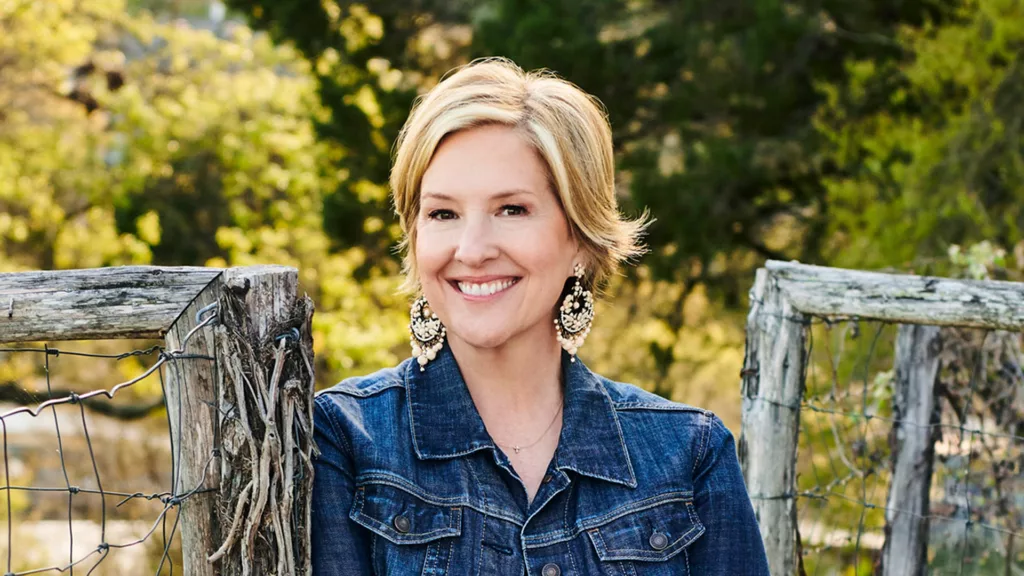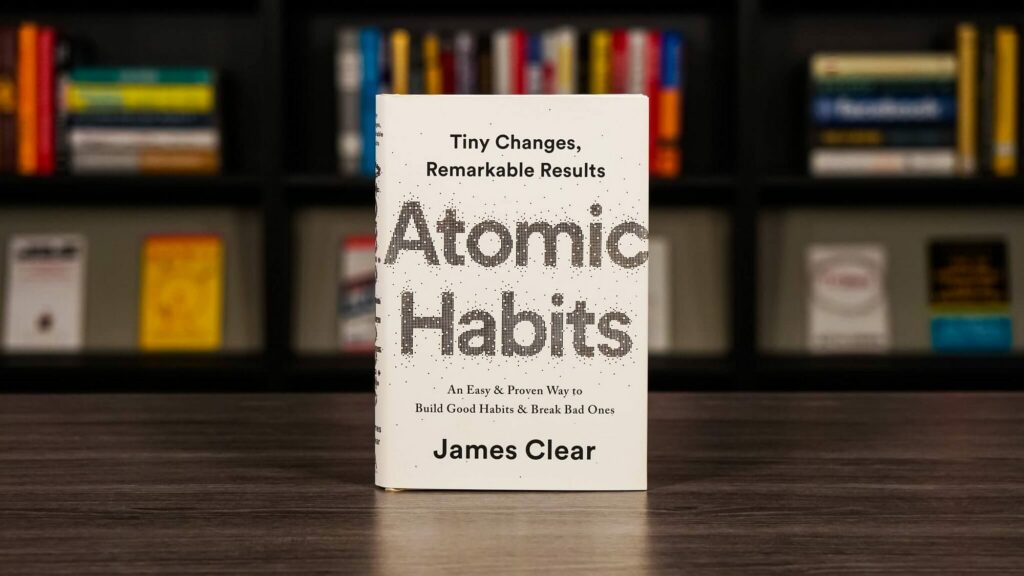Top 7 Free AI Certifications You Can Start Today

Whether you’re a seasoned professional looking to upskill or a curious newcomer eager to explore this fascinating field, there’s never been a better time to dive into AI.
A Brief Guide to Financial Freedom

Money is the key to living a life filled with experiences, adventures, and maybe even a little luxury. Whether you’re dreaming of sipping piña coladas on a tropical beach or want to pay off your student loans, understanding money is essential.
Embracing Vulnerability: Who is Brené Brown

Brené Brown is a renowned researcher, author, and public speaker whose work focuses on vulnerability, shame, and courage. With a unique blend of academic rigor and personal storytelling, she has transformed the landscape of self-help literature and inspired countless individuals to embrace their imperfections and lead more authentic lives.
Beginner’s Guide to Building Passive Income in the Digital Era

Building passive income streams in the digital world is not only possible, it’s becoming increasingly accessible. From affiliate marketing and digital products to investing and rentals, there are countless ways to generate income without trading your time for money.
Rediscovering Spontaneity: Why I Stopped Tracking My Habits

In recent years, habit tracking has become an increasingly popular trend, with apps, specialized journals, and techniques aimed at monitoring every aspect of our daily lives. The idea behind this approach is that constant monitoring of habits can lead to a more organized, productive, and satisfying life.
Ready to Blog Your Way to Success?

Have you ever dreamt of turning your knowledge and passion into a profitable online venture? Look no further than blogging! It’s a fantastic option for introverts and anyone who enjoys working independently. Plus, the potential for passive income through affiliate marketing and other strategies is a major perk.
Why You Should Read “Atomic Habits”

Have you ever felt stuck in a loop of unproductive habits, yearning for positive change? If so, James Clear’s “Atomic Habits” is your beacon of hope. This book isn’t just another self-help manual; it’s a roadmap to personal transformation. Buckle up, because I’m about to give you ten compelling reasons why you should dive into this gem.
The self-made man: a myth to debunk

The self-made man is a figure who embodies the dream of those who want to achieve success starting from nothing, without the help of anyone. He…
Ikigai: The Art of Living with Passion and Purpose

Explore the transformative concept of Ikigai and uncover the secrets to a fulfilling life. Delve into expert insights, recommended readings, and practical tips, guiding you on a profound journey of self-discovery.
Carol Dweck’s Growth Mindset Theory

Carol Dweck’s Growth Mindset Theory AI Art by Ermal Alibali In today’s dynamic and ever-changing world, the concept of success is undergoing a profound transformation. At the forefront of this shift is the pioneering work of psychologist Carol Dweck and her groundbreaking theory of the Growth Mindset. The Power of the Mindset Success, in both personal and professional spheres, has long been a subject of fascination and pursuit. For decades, scholars, leaders, and individuals alike have sought to understand the underlying principles that drive achievement and excellence. Carol Dweck, a renowned psychologist and professor at Stanford University, has made a substantial contribution to this discourse with her theory of the “growth mindset.” In this article, I will explore the life and work of Carol Dweck, examine the fundamental tenets of the growth mindset theory, dissect the four key ingredients that fuel its transformative power, and consider the ongoing relevance of Dweck’s groundbreaking insights. Who is Carol Dweck? Before we dive into the depths of her theory, it’s essential to understand the person behind it. Carol S. Dweck is a distinguished psychologist known for her extensive research on motivation, achievement, and personality. She was born on October 17, 1946, in New York City, and her academic journey has been nothing short of remarkable. Early Life and Academic Journey Carol Dweck’s academic path was marked by a relentless curiosity about human potential. She completed her undergraduate studies at Barnard College and then pursued her Ph.D. in psychology at Yale University, under the guidance of renowned psychologist Donald T. Campbell. Her early work focused on the intersection of achievement and self-conceptions, foreshadowing the groundbreaking research she would later undertake. The Birth of the Growth Mindset Dweck’s fascination with achievement and success led her to conduct extensive research on the beliefs people hold about their abilities and intelligence. Through years of empirical investigation, she crystallized her findings into the concept of mindset, which she introduced to the world in her influential book, “Mindset: The New Psychology of Success” published in 2006. Carol Dweck’s Theory Central to Carol Dweck’s work is the concept of mindset—a belief system that shapes how individuals perceive themselves and their potential. Dweck identifies two primary mindsets that profoundly impact one’s approach to learning, challenges, and ultimately, success: Fixed Mindset: Individuals with a fixed mindset perceive their abilities, intelligence, and talents as innate traits, unchangeable and predetermined. They tend to avoid challenges, fearing failure, and often view effort as futile because they believe that success is primarily determined by their inherent abilities. Growth Mindset: In stark contrast, individuals with a growth mindset believe that their abilities and intelligence can be developed and enhanced through dedication, learning, and perseverance. They embrace challenges as opportunities to learn, persist in the face of setbacks, and see effort as the path to mastery and success. Dweck’s groundbreaking theory has profound implications for individuals, organizations, and society as a whole. It challenges the conventional wisdom that talent alone determines success and posits that one’s beliefs about their abilities are equally—if not more—significant. The Four Key Ingredients to a Growth Mindset The growth mindset is not merely an abstract concept; it is a practical framework that can be cultivated and applied to drive personal and professional excellence. To harness the transformative power of the growth mindset, one must understand its four key ingredients: Ingredient 1: Embracing Challenges Individuals with a growth mindset see challenges as opportunities for growth and learning. They willingly step outside their comfort zones, tackle new and difficult tasks, and view difficulties as chances to improve. In the business world, this translates to a workforce that welcomes innovation, adapts to change, and constantly seeks ways to elevate performance. Ingredient 2: Persisting in the Face of Setbacks Resilience is a hallmark of the growth mindset. Instead of succumbing to failure or adversity, those with a growth mindset persevere. They understand that setbacks are not indicators of their inherent inadequacy but rather part of the learning process. In organizations, this resilience fosters a culture of determination, where employees bounce back stronger from setbacks, driving progress and innovation. Ingredient 3: Effort as the Path to Mastery Effort is seen as a necessary and fulfilling part of the journey toward mastery in a growth mindset. Individuals are willing to invest the time and energy required to achieve their goals. In the corporate world, this translates to a workforce that is committed to continuous improvement, striving for excellence in every task and project. Ingredient 4: Learning from Criticism Constructive feedback and criticism are embraced by individuals with a growth mindset. They see feedback as a valuable tool for personal and professional growth, understanding that it can help them become better at what they do. Within organizations, this attitude fosters a culture of feedback, where employees actively seek and provide input, leading to improved performance and innovation. Carol Dweck’s Ongoing Work As of my last knowledge update in September 2021, Carol Dweck continued her work as a professor at Stanford University, where she actively researched and promoted the concept of the growth mindset. However, her influence extended far beyond the walls of academia. Dweck’s theory had found its way into schools, boardrooms, and leadership development programs, sparking a movement towards a more adaptive and resilient approach to learning and achievement. Beliefs of a Growth Mindset At the core of the growth mindset are beliefs that drive individuals to reach their fullest potential. These beliefs include: Belief 1: Potential for Development Individuals with a growth mindset believe that their abilities and intelligence are not fixed but can be developed with dedication and effort. This belief is the foundation upon which the growth mindset is built. Belief 2: Embracing Challenges A growth mindset involves viewing challenges as opportunities for growth and learning. This belief encourages individuals to seek out new and challenging experiences, pushing the boundaries of their capabilities. Belief 3: Persistence Persistence is a natural outgrowth of the growth mindset. Those who embrace this mindset understand that setbacks are part